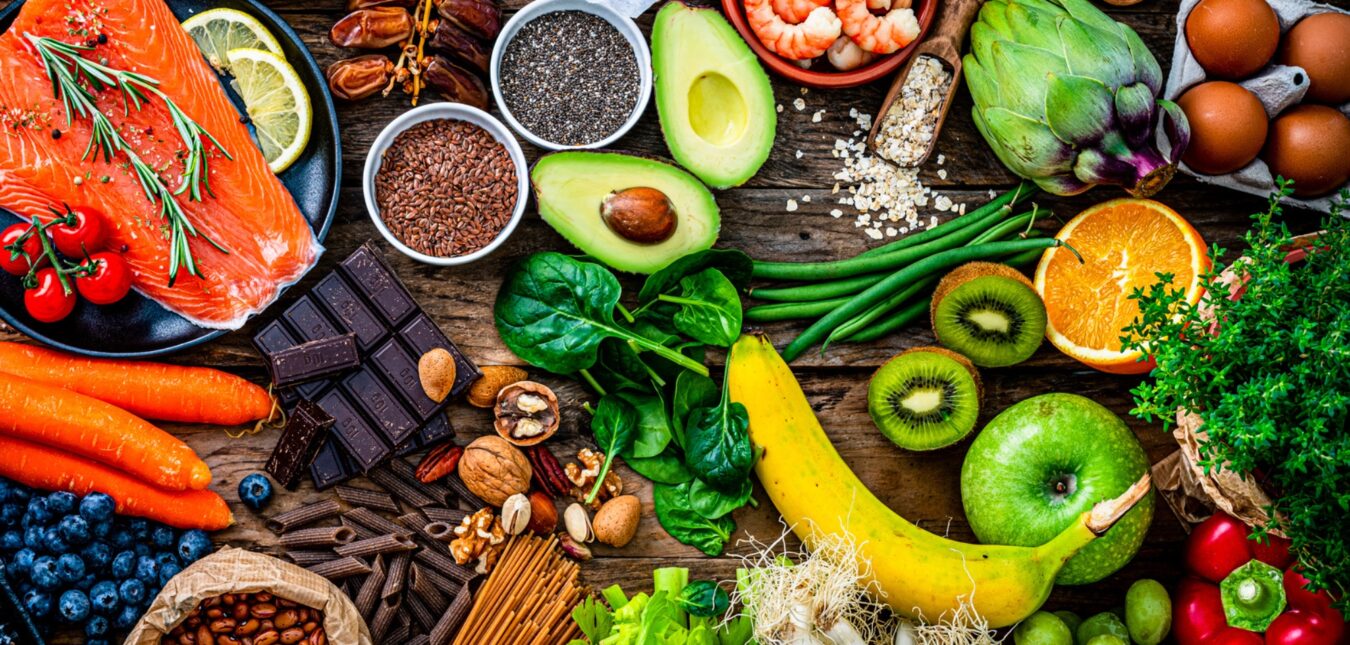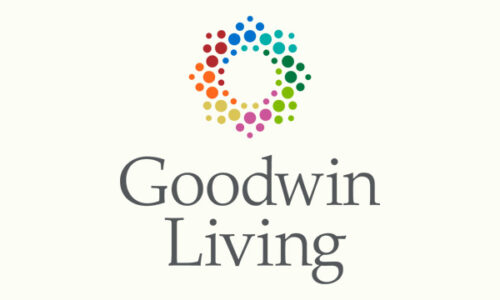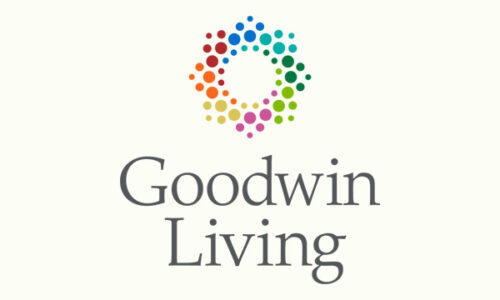November 20, 2024
Simple, Delicious and Nutritious: Quick and Easy Nutrition Tips for Brain Health
By Alison Neov, Alexandra Freiman and Brian Patterson
Good nutrition supports physical health as well as cognitive function, which makes it an essential part of healthy aging. Yet, nourishing our bodies can often feel like an overwhelming task. Finding the time to make a meal, let alone one that checks all the boxes for a “healthy” diet can be difficult, especially if you’re also caregiving for someone else.
In this article, we’ll highlight recent research that suggests specific foods and practices can help improve brain health and protect against cognitive decline―and the good news is that it doesn’t have to be time consuming to follow these tips! Whether you’re looking to preserve your own cognitive function or care for someone living with dementia, this introduction to the MIND diet and brain-friendly foods can help. We’ll share tips on choosing safe kitchen tools and preparing simple recipes that will help your mind stay sharp!
Brain-Boosting Foods and the MIND Diet
The MIND diet, short for the Mediterranean-DASH Intervention for Neurodegenerative Delay, is a scientifically supported eating plan designed to enhance brain health and potentially reduce the risk of cognitive decline, including Alzheimer’s disease. It combines elements of the Mediterranean and DASH (Dietary Approaches to Stop Hypertension) diets, emphasizing foods that protect the brain while limiting those that may contribute to inflammation and oxidative stress.
The MIND diet focuses on several brain-healthy food groups:
- Leafy Green Vegetables: These provide antioxidants, vitamin K and folate that are essential for brain function. In fact, regular consumption of leafy greens may even slow cognitive decline.
- Berries: Berries are rich in anthocyanins, which are antioxidants that protect brain cells from aging and help combat inflammation and oxidative damage. Blueberries and strawberries especially are known for their high levels of anthocyanins.
- Whole Grains: These provide fiber, magnesium and vitamin E, which promote cardiovascular and brain health.
- Fish: Fatty fish like salmon offer omega-3 fatty acids that are essential for supporting memory and cognitive performance.
- Healthy Fats: Olive oil is recommended as the primary cooking fat, with nuts offering additional anti-inflammatory benefits. Eggs are packed with choline, which enhances memory and reduces inflammation.
Beans and poultry are also recommended as sources of protein and B vitamins.
As much as it recommends certain foods, the MIND diet discourages foods high in saturated and trans fats, such as butter, cheese, fried foods and red meats.
Research suggests that closely following the MIND diet can lower Alzheimer’s disease risk by up to 53%, while even moderate adherence offers a 35% risk reduction.
How to Easily Incorporate the MIND Diet’s Top Foods
Fatty Fish
Aim for one serving (four ounces) per week. Try mackerel, salmon or sardines for maximum benefits.
Berries
Add two or more servings (e.g., ½ cup of blueberries or eight strawberries) per week to oatmeal, smoothies or snacks.
Whole Grains
Replace refined grains with whole grain bread, brown rice and popcorn.
Eggs
Incorporate up to three eggs per day in meals or snacks.
Leafy Greens
Aim for at least six servings per week. For easy ways to eat your greens, add a handful to wraps, smoothies or sauces.
Brain-Healthy Kitchen Tools
When it comes to brain health, food matters. So do the materials you cook with. Avoiding harmful materials and opting for safer alternatives can reduce your exposure to toxins linked to cognitive decline.
PFAS (per- and polyfluoroalkyl substances), commonly used in nonstick cookware coatings such as Teflon (PTFE), pose significant risks to human health and the environment. These “forever chemicals” are highly persistent, meaning they do not break down naturally and can accumulate in water, soil and living organisms over time.
PFAS exposure has been linked to a range of health issues, including liver damage, increased cholesterol levels, thyroid disease, reduced immune response and even cancer, such as kidney and testicular cancers. Research also suggests potential impacts on brain health due to the chemicals’ ability to interfere with hormonal and developmental processes.
Stainless steel or cast iron are safe alternatives for durable, heavy-duty cookware. For baking and storage, glass or silicone bakeware are excellent alternatives. Avoid aluminum, as it has been linked (though not definitively) to higher concentrations in Alzheimer’s patients.
Quick and Easy Recipes to Support Brain Health
Knowing what foods to choose is a first step towards working them you’re your diet. The next step is learning how to easily incorporate these nutrient-dense foods into your meals. Here are two recipes that align with the MIND diet:
- Trail
Mix (Perfect for on-the-go snacking)
Ingredients:
– Sunflower seeds
– Pumpkin seeds
– Coconut flakes
– Almonds
– Walnuts
– Dried blueberries and apples
– Dark chocolate chips (70% cocoa or higher)
Instructions:
Choose your favorites among these ingredients, mixing 3/4 cups of nuts, 1/2 cup of seeds, 1/2 cup of dried fruit and 1/4 cup of chocolate and/or coconut flakes in a bowl. Store in an airtight container and enjoy as a nutrient-packed snack. Makes 8 servings.
Basic Omelet
Ingredients
- 3 eggs
- Seasonings (salt, pepper, cayenne, fresh herbs)
- Desired fillings (pre-cooked vegetables, cheese, etc. This is a great place to add those leafy greens!)
Instructions
- Beat the eggs with seasonings.
- Heat a 6-inch skillet over high heat and add 2 tablespoons of clarified butter.
- Pour eggs into the pan, stir continuously until they start to set.
- Add fillings, remove from heat, and roll the omelet onto a plate.
- Garnish with fresh parsley and serve immediately.
Nourish Your Mind, One Meal at a Time
Good nutrition can be a powerful tool in maintaining your brain health. By following the MIND diet, using safe kitchen tools and preparing simple recipes, you can take proactive steps to protect cognitive function. Whether for yourself or a loved one, these strategies offer a simple path to healthier living—one smart meal at a time.
Start small today: Swap refined grains for whole grains, add berries to your morning oatmeal and choose stainless steel over nonstick cookware. Every choice counts!
_______
Alison Liggett Neov, RD, CSG, Alex Freiman, RDN, and Chef Brian Patterson are key leaders of the dining experience at Goodwin Living. As dietitians for Goodwin House Bailey’s Crossroads (GHBC) and Goodwin House Alexandria (GHA), respectively, Alison and Alex work closely with the dining services teams to plan the menus for our dining venues and meal services. They also meet individually with residents to provide nutritional counseling. Chef Brian is Goodwin Living’s Culinary Innovation and Development Chef. In his role, Chef Brian provides training and upskilling to the dining services teams at GHA, GHBC and The View Alexandria (TVA), audits kitchen operations, and acts as the project manager for new dining services initiatives.





